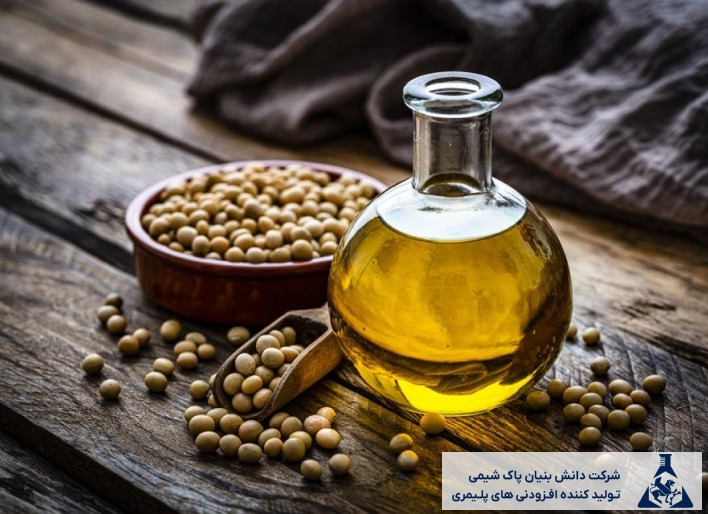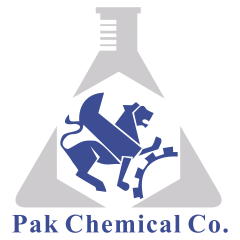Epoxidized Soybean Oil (ESBO) ranks among the most widely used non-toxic plasticizers and stabilizers across various industries, especially in plastics and packaging. Manufacturers produce this product by epoxidizing natural soybean oil. Because of its unique properties, many companies choose it as a key alternative to phthalate-based plasticizers and traditional stabilizers. In recent years, with increasing environmental concerns and strict health regulations, ESBO has become the focus of attention of global industries as a safe, environmentally friendly option with multiple properties.
Production process and chemical nature of ESBO
The production process of ESBO involves the selective oxidation reaction of crude soybean oil with organic peroxides and specific catalysts. This process results in the addition of epoxy groups (–C–O–C–) on the double bonds of the fatty acid chains. The presence of these reactive groups changes the chemical properties of the oil and increases its thermal stability and resistance to ultraviolet radiation.
The general chemical formula of ESBO is similar to that of oil triglycerides, but with a significant number of epoxy rings, which are the main factor in the high reactivity and stability of this material.
Key features of ESBO
- Excellent thermal and optical stability: Epoxy groups prevent the degradation of polymer chains at high temperatures and UV radiation, increasing the shelf life of the final products.
- High chemical compatibility: Ability to form covalent bonds with various polymers, especially PVC, which improves the mechanical and chemical properties of the product.
- Safety and non-toxicity: ESBO contains no heavy metals or phthalate compounds, making it suitable for direct contact with food, medical devices, and cosmetic products.
- Environmentally friendly: Its plant source and high biodegradability make it one of the most sustainable alternatives to petroleum-based plasticizers.
Industrial applications of ESBO
- Plastics industry (especially PVC)
ESBO is used as a plasticizer and heat stabilizer in soft PVC compounds such as cables, hoses, floor coverings, packaging films and injection molded parts. The presence of epoxy groups prevents the release of HCl during PVC degradation and prevents discoloration and loss of product strength.
- Food packaging industries
Thanks to its non-toxicity and chemical stability, manufacturers use ESBO in transparent films and food packaging containers. It fully complies with the requirements of regulatory agencies such as the FDA and EFSA.
- Printing inks and paints
ESBO improves the quality of coatings by increasing the adhesion and uniform dispersion of pigments and increases the color resistance to heat and light.
- Industrial lubricants and oils
Because of its stable chemical properties and plant-based origin, manufacturers use ESBO in the formulation of industrial and hydraulic lubricating oils as a substitute for mineral oils.
In epoxy and polyurethane resins, the addition of ESBO increases the flexibility and chemical resistance of the final product and improves mechanical properties.
- Pharmaceutical and agricultural industries
Thanks to its biocompatibility and non-toxicity, producers include ESBO in certain pharmaceutical formulations and use it as a carrier or additive in agricultural pesticides.
Advantages of ESBO over traditional plasticizers
- Complete replacement for phthalate plasticizers: without the known toxic and carcinogenic effects of phthalates.
- Longer durability and stability: Less migration from the polymer matrix, resulting in longer product shelf life.
- Environmental friendliness: Plant-based, recyclable, and biodegradable.
- Cost-effective: Despite a relatively higher initial price, the longer product life and reduced environmental problems result in long-term savings.
Future and Outlook of Epoxy Soybean Oil (ESBO) Market
The global ESBO market is growing rapidly due to the growing trend of using phthalate-free and environmentally friendly plasticizers.Experts predict that ESBO will gain a significantly larger share of the global plasticizer and stabilizer market over the next five years, as international regulations on polymer products become stricter. In addition, advancements in epoxidation technologies and improvements in the quality of vegetable oils will further enhance the efficiency and properties of this material.
Epoxy soybean oil (ESBO) is a sustainable, safe and versatile solution for many modern industries. From food and medical packaging to PVC, paint, ink and lubricants, it plays a key role in replacing traditional plasticizers and improving product quality. The future of ESBO will not only be about reducing environmental impact, but also about developing greener and safer products.

Read more:
